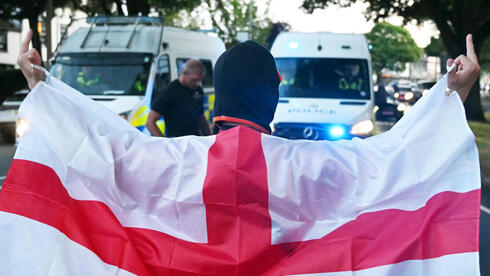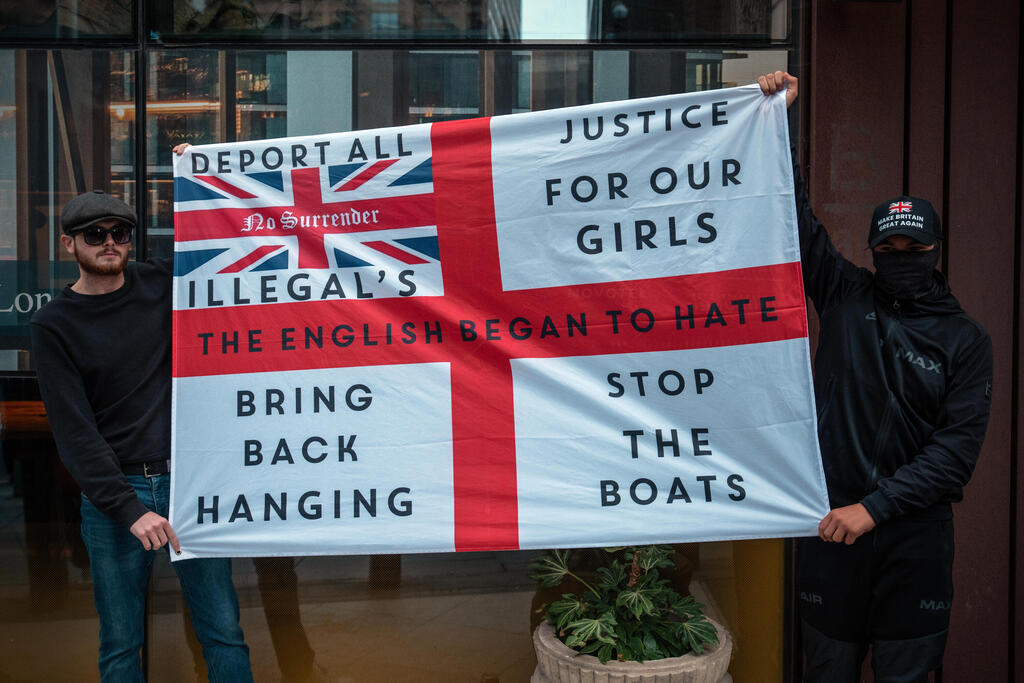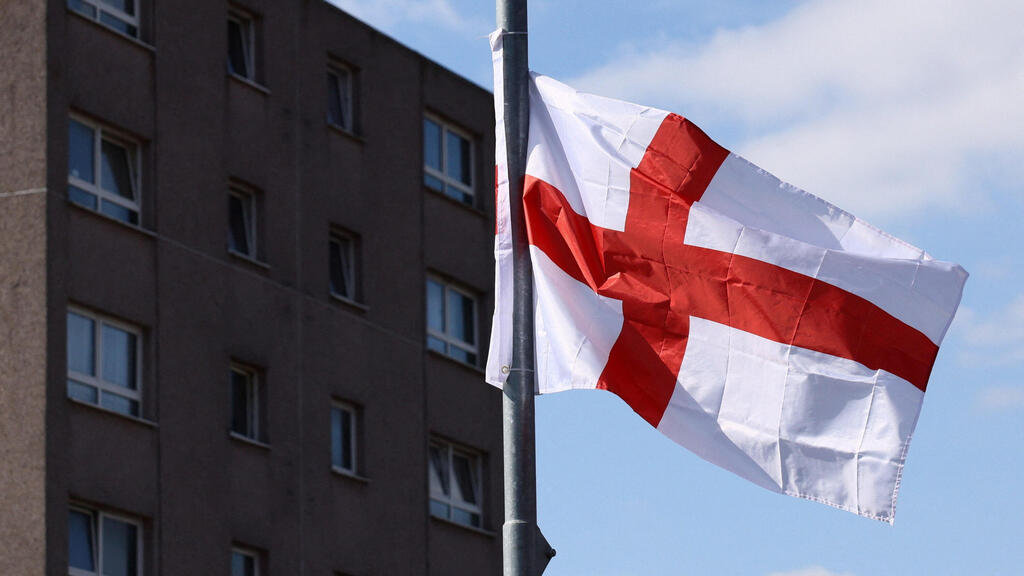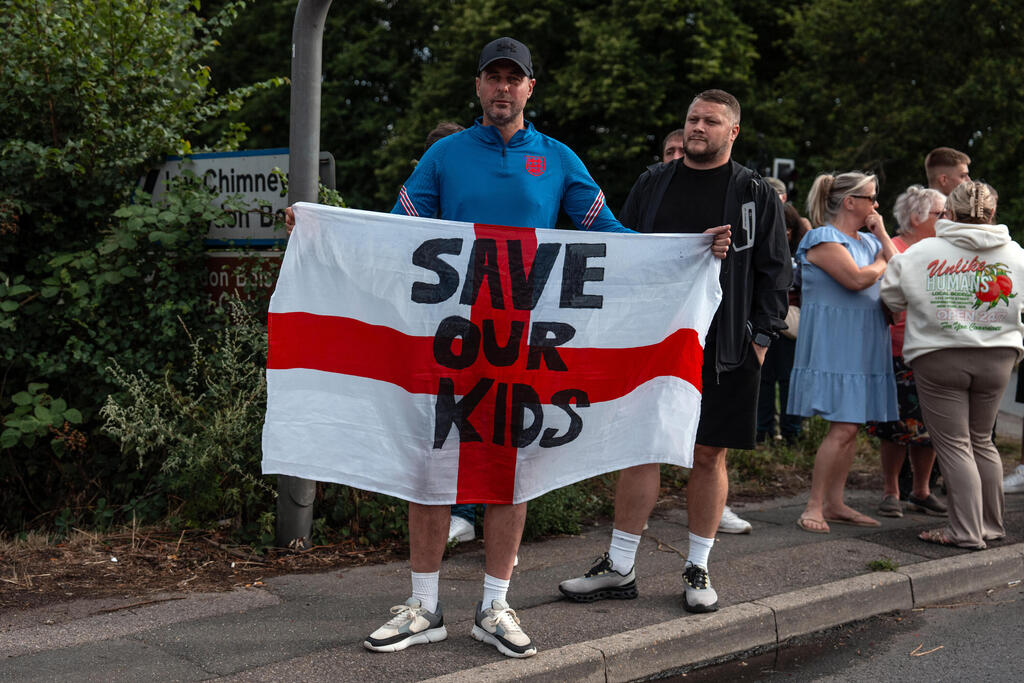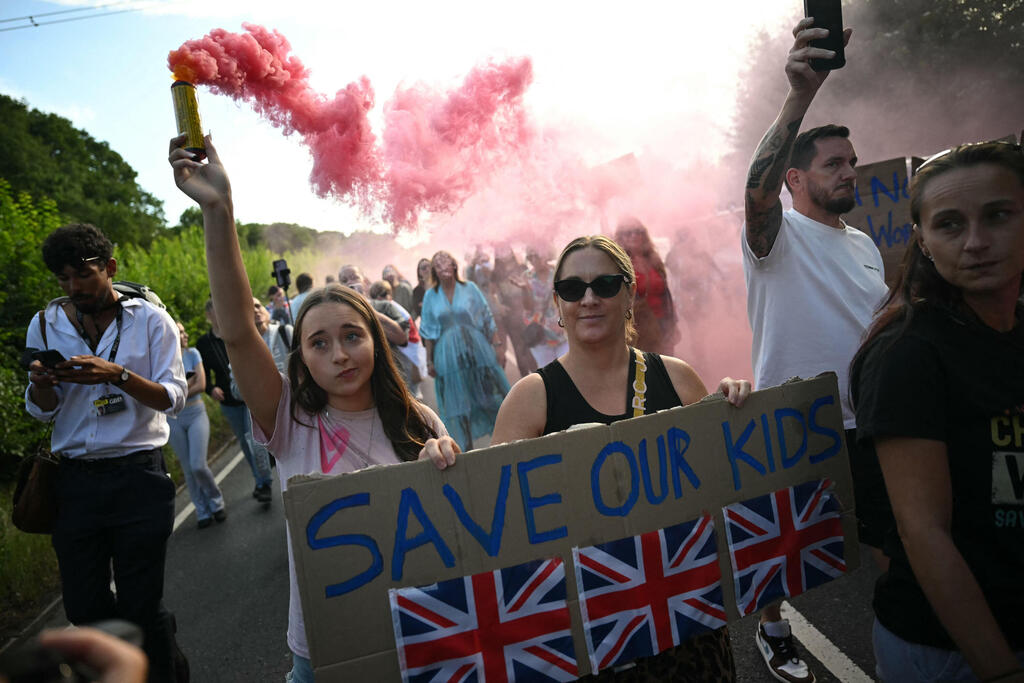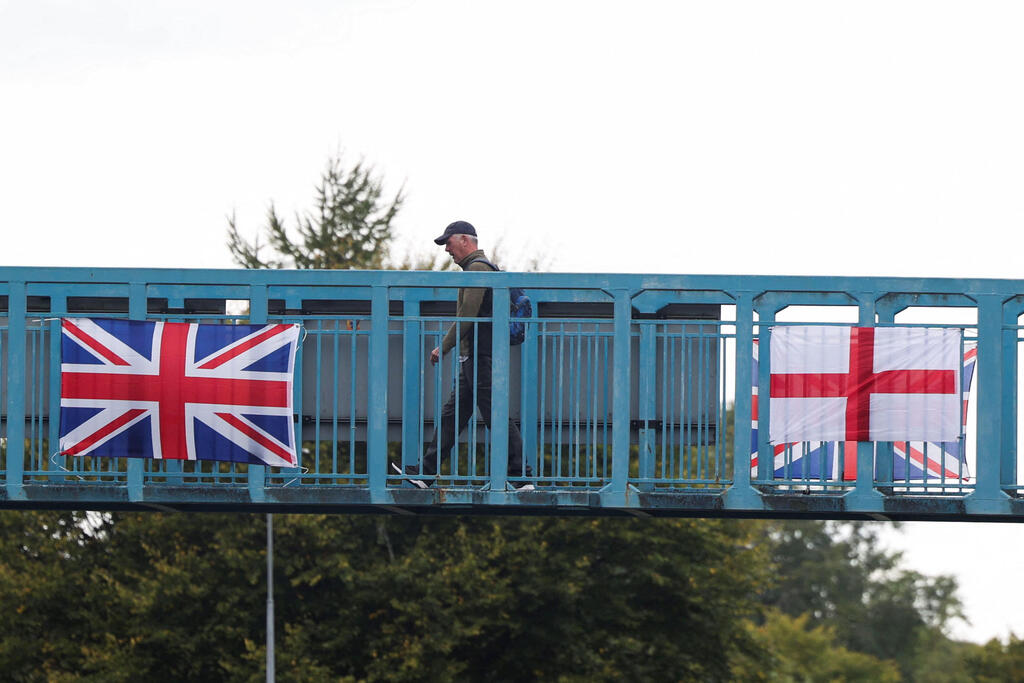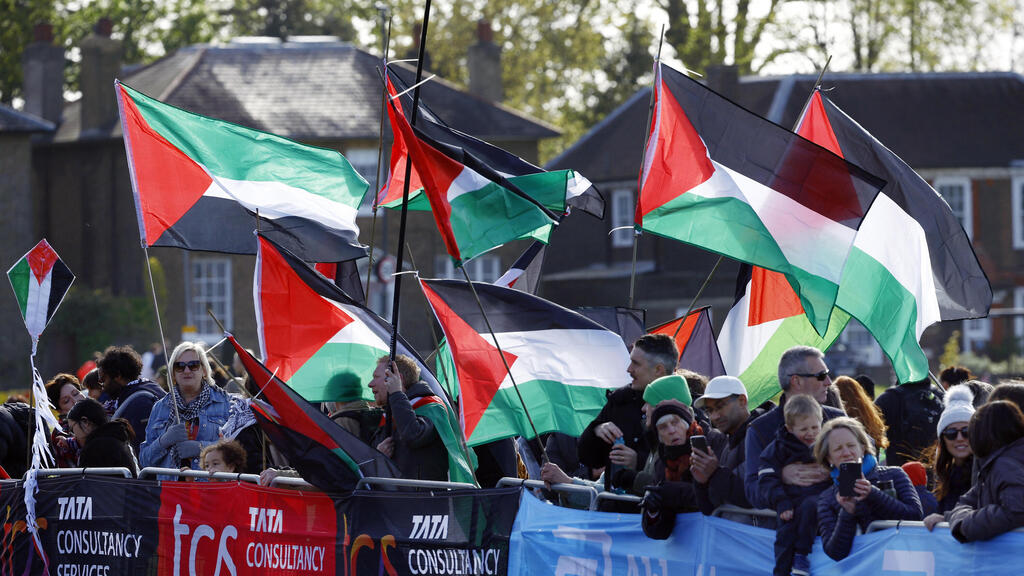Anyone traveling in Britain these days would likely encounter an unusual sight by local standards: thousands of Union Jacks and England’s red-and-white St. George’s flags flying from lamp posts, stretching from Birmingham to Manchester and from London to Norwich.
The display of flags, more commonly seen during major sporting events or royal occasions, marks a burst of patriotism not typically found in everyday life in England or the wider United Kingdom. The effort has sprung up independently, with ordinary citizens and political activists alike answering calls to “fly the colors.”
Opinions differ on what lies behind the initiative and what it aims to achieve. That is especially true of England’s red cross flag, which in recent years has become strongly associated with far-right activists and nationalist movements that critics claimed have been co-opted by them.
A YouGov poll conducted in England last year found that many citizens feel uneasy about the flag. While a majority said they would view it positively if displayed in a private home, only about 60% expressed approval, and a significant number said they would look on it negatively.
According to the BBC, the current wave of flag-hanging across England began in mid-July in Wylie Castle, on the outskirts of Birmingham, before spreading to other parts of the country, including Worcester, Bradford, Manchester, Newcastle, Norwich and London.
One catalyst for the trend, the broadcaster reported, was the story of a 12-year-old girl from the town of Rugby who was barred from giving a school speech about being proudly British while wearing a dress printed with the Union Jack. The girl wore the dress for the school’s “Celebrate Culture” day, an event meant to showcase diversity, where students were asked to come dressed in clothes representing their cultural background instead of the school uniform.
The school’s refusal sparked sharp criticism across Britain, eventually prompting administrators to apologize and clarify that displaying the British flag is a source of pride, not shame.
Following the incident, a group calling itself the “Wylie Warriors,” founded by self-described “proud English,” emerged, claiming they wanted to show the entire country how much they celebrate their history. The group quickly gained traction online, raising funds to hang national flags. On TikTok, its members launched a campaign under the slogan “Raise the Colors,” a name that was later adopted by another group also promoting the flying of national flags.
Since then, more and more flags have appeared on lampposts, roundabouts and town squares. In some cases, however, local authorities intervened and removed them, saying they had been hung or painted without permission. Supporters of the flag-hanging movement described the removals as political censorship, pointing to them as further proof, in their view, that something is fundamentally wrong in Britain.
The “Raise the Colors” campaign may have been sparked by the Rugby school incident but gained its momentum from a what may be a broader sense of frustration among many English and British citizens with their political leaders and a growing fear of losing national identity.
A central driver could be attributed to the ongoing influx of migrants crossing from France into England via the English Channel. Since the Labour government came to power last year, more than 50,000 people have arrived. In recent weeks, heated protests have taken place outside hotels where authorities were housing the undocumented migrants at public expense.
After the arrest of a resident of such a hotel, accused of sexually assaulting a teenage girl soon after his arrival, protests at “migrant hotels” began. The demonstrations have been fueled by the far-right Reform UK party, led by Nigel Farage, which has been surging in recent polls and is now the largest party in Britain, while Labour’s support has plummeted.
At the rallies, including those held this past weekend, crowds waved large numbers of English and British flags, a display that further cements the symbols’ association with the political right, and, critics say, with nationalist movements.
“This isn’t patriotism, it feels like an excuse for xenophobia,” a Birmingham-area resident told the BBC. Nick Ireland, a Dorset city councilor from the Liberal Democrats, also linked the flag-waving to racist groups, saying over the weekend that many residents find the displays “intimidating” and that it is naïve to think the flags have not been “hijacked” by the far right. In recent days, British media have published investigations suggesting ties between the “Fly the Colors” campaign and extremist groups, though the movement itself denied the reports.
While politicians on the left joined the criticism of the flag displays and some local councils under their control began removing flags from lampposts and other public property, other municipalities, including those led by Reform UK, praised the displays as patriotic.
On Monday, Conservative Party chair Kemi Badenoch wrote in a column in the Daily Mail that local authorities taking down the flags were acting “shamefully” and enforcing the law selectively. “There is nothing racist about flying your national flag and nothing extreme about feeling proud of your country,” Badenoch wrote.
In Birmingham, for instance, the city library was recently lit up in the colors of the Pakistani and Indian flags. “The denigration of everything British in the name of ‘diversity’ is not progressive,” she argued. “It is divisive. It has to stop. It should not be considered a revolutionary act to fly our flags in our own country.”
It is no surprise that the issue of the Israeli-Palestinian conflict has also seeped into the flag debate. Many observers believe the campaign to hang British and English flags is, in part, a backlash to the widespread display of Palestinian flags across the UK, a practice that surged after Oct. 7, 2023, as a show of solidarity with Palestinians.
Badenoch echoed that sentiment in her column, writing: “The same public officials who took down English flags will turn a blind eye to Palestinian flags raised in violation of local regulations. They don’t care about the law — they care about politics.”
Such accusations have been directed specifically at the Birmingham City Council, the U.K.’s second-largest city, which is governed by Labour. Critics claim the council allows Palestinian flags to fly while hastily removing British and English flags.
The council rejected the allegations and said that that no flags have been removed since Aug. 1. According to the BBC, most Palestinian flags in Birmingham were displayed sporadically on one or two lamp posts rather than in concentrated rows, as was the case with English and British flags. When Palestinian flags were hung in a row on lamp posts in early July, they were quickly taken down.
Council officials told the Daily Mail privately that they had to have police assistance to remove Palestinian flags from lamp posts after “issues that arose the first time we tried to take them down.”
Whatever the motivation behind the “Raise the Colors” campaign, anger over illegal immigration, economic conditions, or outright racism, all the flag-wavers seem to agree that their leaders have neglected them and left them behind.
Nick Datt, chairman of the Royal Society of St. George, which promotes an inclusive vision of English patriotism, hopes the movement can at least help restore the flag’s standing. “This has been our flag since the 14th century,” he told The Washington Post. “Only in recent years has it been co-opted by extremists, and we need to take it back. My goal as chairman is to distinguish patriotism from nationalism. Patriotism is inclusive; nationalism is exclusive.”
